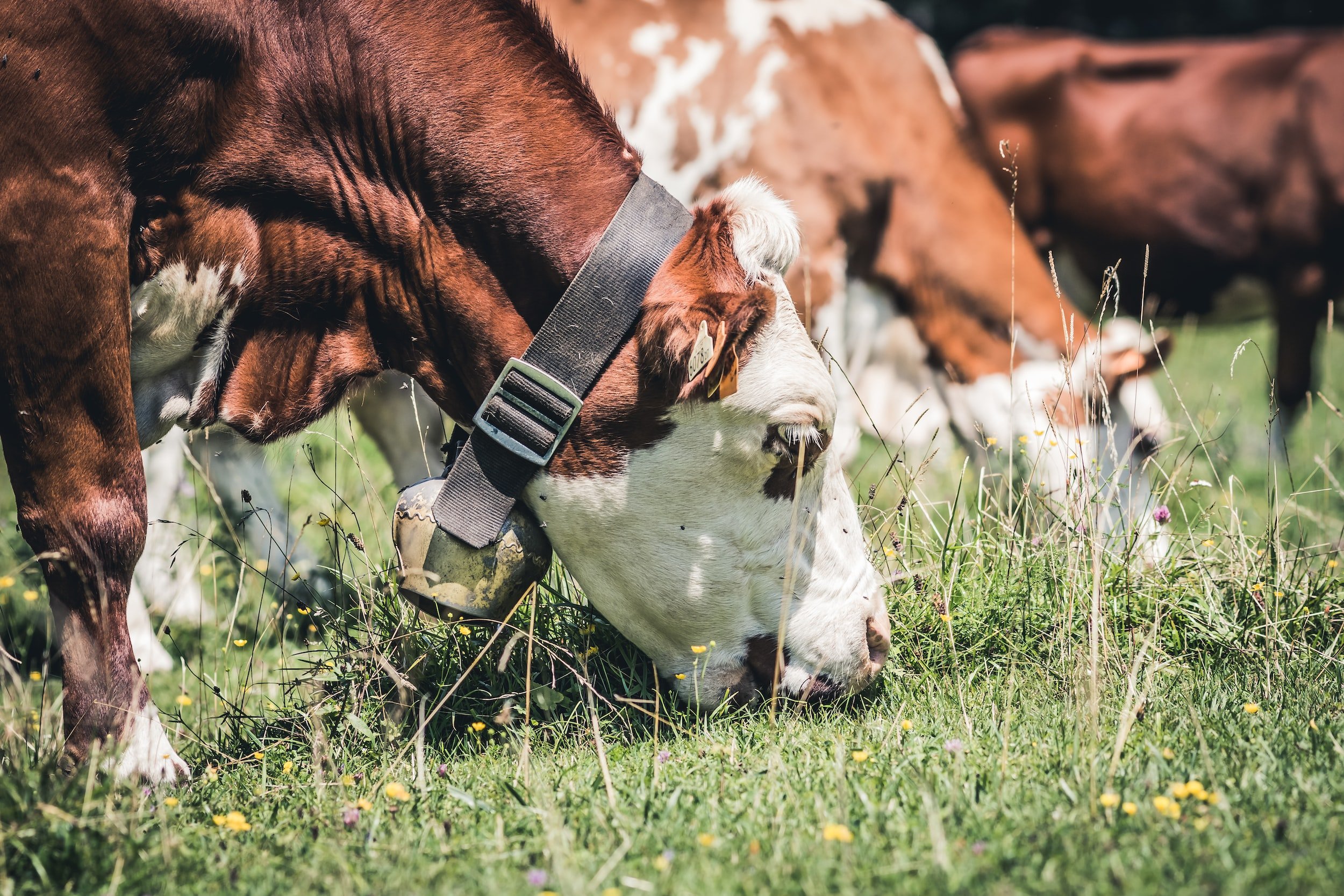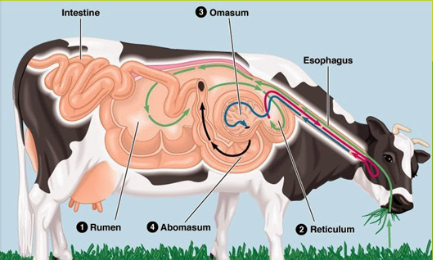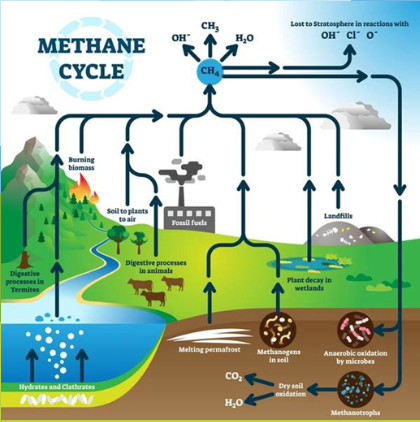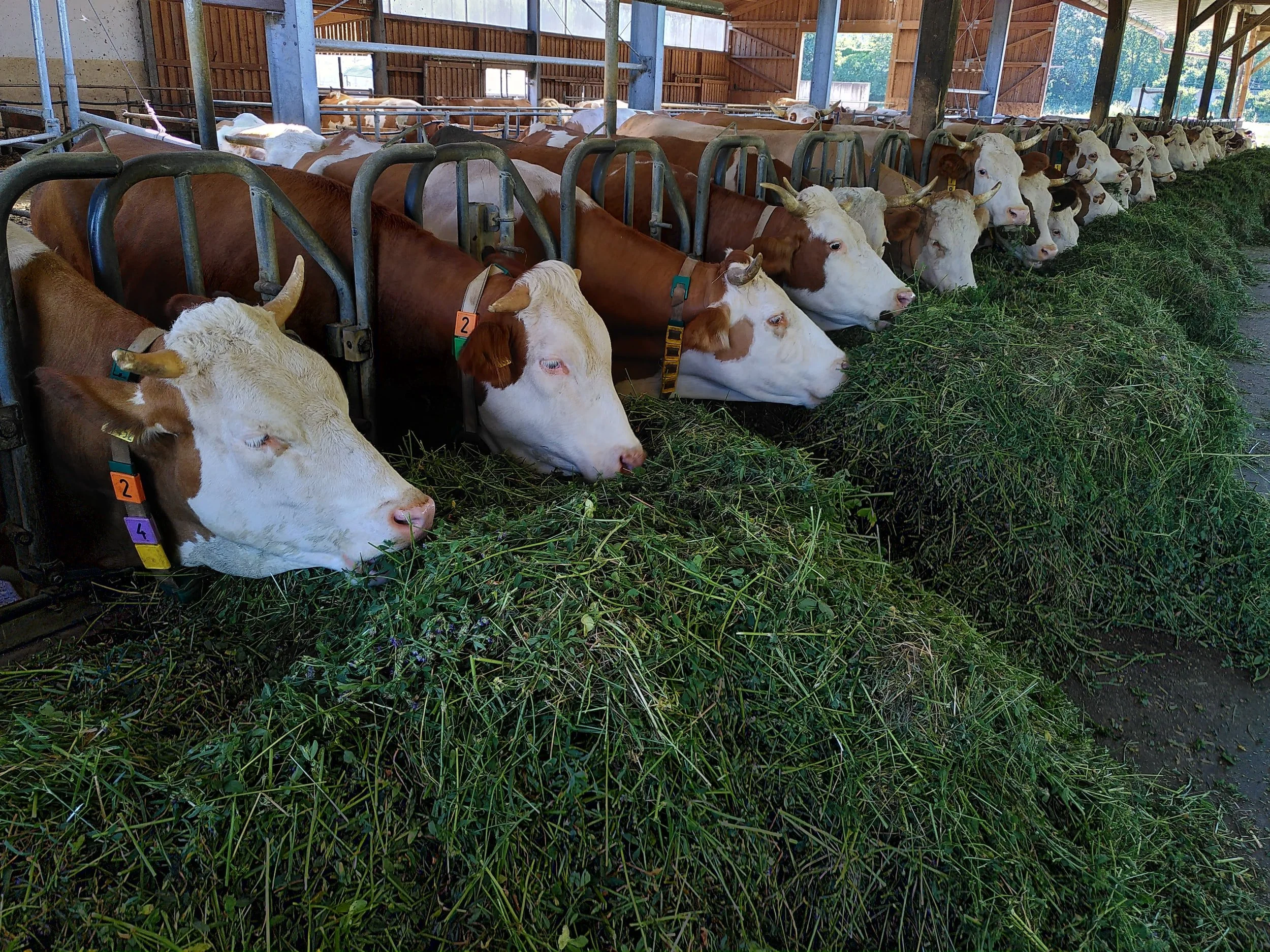Problem Card #9:
Dairy Industry
Western Victoria has around 1,170 dairy farms producing 2 billion litres of milk a year!
But have you ever wondered what impact these cows and this industry have on the land?
A by-product of milk production is a powerful greenhouse gas called methane. Methane is a problem, but it could also be a solution, as methane can be burnt to produce energy.
Imagine a future where the methane from farms stayed on farms and didn’t contribute to environmental problems – now that's cool!
This Problem Card introduces the industry issue so that students can devise their own STEM-related solutions.
Explore the Problem Card below, and find teaching resources, including Curriculum Activities, customisable Unit Plans and Marking Rubrics at the bottom of the page.
How do cows produce methane?
Cows are herbivores and mainly eat grass. As you can imagine grass does not have a lot of nutrition therefore, cows have adapted a specialised digestive system to get the most nutrients from grass as possible.
Cows have one stomach with 4 chambers called ruminants. A ruminating animal stores and chews its food more than once.
The balls of food, or the cud, are regurgitated and chewed more than once to extract all the nutrients. When the grass breaks down, methane is released by burping (90%) or, when the grass moves all the way through the digestive tract and is released, as farting (10%).
Cows are not the only animals that produce methane. Methane is produced by anything breaking down including rotting plants, animals, or food we throw away. However, cows are the most significant contributors to excess methane in our atmosphere.
Is Methane All Bad?
Earth’s atmosphere needs methane to stay warm, without methane all of the Earth’s warmth would escape into space and Earth would be frozen, but too much methane and the Earth gets too warm – this is the problem with Climate Change.
Stock feed to reduce methane
Farmers in Ancient Greece did not have to worry about Climate Change but they did need to worry about what to feed their precious dairy cows and often used seaweed to supplement their feed.
Research from Canada has discovered that cows’ feed supplements made from seaweed can reduce the amount of methane production by 20%.
So why not just feed cows seaweed?
Cows have not evolved to eat a diet made up completely of seaweed. The researchers looked at the amount of seaweed needed to reduce methane production and found that the quantities would need to be too high to be good for the cows.
However, new Australian research into different types of seaweeds is looking promising. Maybe in the future our cows will have a very different diet.
Innovate
Read about some real-world issues that will provide invaluable industry context.
When you’re done reading, move on to the CREATE section for an introduction to Problems that students can solve.
You can also download a printable, PDF version of the problem card.
Poo-lotion Solution?
Many countries reduce their methane emissions by turning waste into energy!
Take Vietnam for example – lots of regional households have family pigs that are raised for meat but can also be used to reduce waste by eating household vegetable scraps.
Pigs are not ruminating animals, but they still fart out methane, and methane is emitted from their poo.
A very effective way of reducing that waste is to collect the poo in a biodigester. The biodigester traps the gas and that can be piped into homes for cooking on gas stoves.
Create
This section will introduce an industry problem related to the Dairy Industry that students can choose to address with STEM-related solutions.
Reducing the Dairy Industry’s Environmental Impact:
How can we innovate the dairy industry so that the impact on the environment is not so great?
Think about:
Is there a way to balance the good and bad aspects of methane and milk?
How can we educate people about what happens during milk production?
If we didn’t have milk what would change?
Additional Resources
-

Problem Card
Download a printable, PDF version of this Problem Card.
-

Dairy Industry Curriculum Activity
Explore relevant Curriculum Activities
-

Student Worksheet
Download an editable student activity worksheet.
-

Rubric
Download an editable marking rubric
-

Unit Plan
Download an editable suggested Unit Plan




